Sustainability is the defining issue of the era – challenging countries, governments, industries and populations to find solutions.
For many of us, knowing what to do for the best can feel overwhelming. Our decisions about food and drink are increasingly significant.
Kathryn Ellaway, market insight manager in the food and drink sector team at economic development partnership Opportunity North East (One), pointed out that one-quarter of Scottish households are “eco-actives”. These are shoppers who are highly concerned about the environment and making the most of actions to reduce their waste.
They feel a responsibility to be more sustainable, follow key issues more actively and have a greater awareness.
“In Scotland, these consumers spend £2.7 billion a year on fast-moving consumer goods.”
Kathryn Ellaway, Opportunity North East
Ms Ellaway said: “Their concern translates into what they buy. They are highly likely to avoid plastic packaging, choose refillable over single-use products, favour locally-produced meat, fish, fruit and vegetables, purchase products with reduced carbon footprint and animal welfare credentials, and select brands that promote their investment in the well-being of their workforce.
“In Scotland, these consumers spend £2.7 billion a year on fast-moving consumer goods.”
It is encouraging that north-east food and drink producers are at the forefront of the wider industry’s drive to deliver the healthy, nutritious, sustainable products consumers increasingly demand. Everything from their renewable energy systems and modern facilities to bees and electric bikes contributes to the sector’s transition to net-zero.
According to One food, drink and agriculture director Peter Cook, the focus on sustainability is making sure businesses meet current and future policy and regulatory requirements, while also addressing a fast-growing market opportunity.
Drive towards sustainability ‘here to stay’
Mr Cook added:”While the squeeze in consumer spending is making many focus on price above all else, the drive towards sustainability – showing a responsible use of the world’s resources – is here to stay. It’s making businesses reduce their waste, increase efficiency and think about their supply chains from end to end.
“That is good for the environment, future-proofs operations, and can improve productivity and profitability in a sector where margins are often tight. The added value is that sustainability influences more consumers’ decisions. It becomes a powerful marketing tool and increases competitive advantage if you can tell your story well.”
Last year One partnered with Scotland Food & Drink to pilot a sustainability advisor for food manufacturing in the north-east. The success of that pilot, which supported 40 businesses to review their performance and implement action plans, has informed the rollout of a national net-zero support programme.
Mr Cook said: “Food and drink is a critical growth sector in our economy and the data shows that, despite difficult times, turnover is growing by over 4% per annum. Working with partners, we are committed to helping businesses understand this complex topic, prioritise their actions and tell great sustainability stories. This can reduce costs and create a marketing advantage.
“As a region, we have to be at the leading edge of this development to turn it from a threat into an opportunity.”
North-east ustainability success stories ‘exist across the board’
Food and drink production employs more than 22,000 people in the north-east, with firms across the region turning over more than £2.4bn across a sector spanning meat, fruit, vegetables and seafood processing to baking, brewing and distilling.
Sustainability success stories exist across the board, Mr Cook said, adding: “Inspiring businesses are innovating and tackling the sustainability challenge, and increasingly integrating what they do with their brand.
“Mackie’s, Mackintosh of Glendaveny, Associated Seafoods, Forest Farm, Burn O’Bennie Distillery and Rora Dairy are good examples of businesses addressing sustainability, from energy use and waste reduction to innovations in packaging and processes, and environmentally-focused primary production. They are influencing the wider supply chain and helping to change consumers’ choices.”
Family-owned ice-cream firm Mackie’s of Scotland is committed to sustainability and produces more than twice the energy it consumes through wind turbines, solar panels and biomass boilers. In 2021 it started its single-largest-ever investment, in a low-carbon refrigeration system. Benefits have included insulation from rising energy costs, reduced energy consumption and improved production efficiency with faster freezing.
Ice-cream firm scoops sustainability award
These successes were recognised at the North East Scotland Food and Drink Awards in June.
Mackie’s managing director Stuart Common said: “We secured the sustainability award in recognition of our innovation, including most recently installing one of Europe’s most efficient low-carbon refrigeration systems. With its completion this year, we’re now using sustainable energy sources to cool and store our ice-cream. It’s an innovative mix of technology and a first for Scotland.”
Other initiatives at Mackie’s – based near Rothienorman, Aberdeenshire – include focusing as much activity on-site to minimise food miles, providing electric bikes for use by staff and developing bee habitats on the family farm to boost biodiversity.
Another award-winning north-east pioneer is Mackintosh of Glendaveny, a producer of cold-pressed rapeseed oils launched in 2009. Continuous investment and expansion in its production facility near Peterhead have made it one of the UK’s largest and most efficient producers.
Environmental factors are ‘crucial selling point’ for rapeseed oil firm
“We also believe we are among the greenest,” managing director Gregor Mackintosh said, adding: “Environmental factors are a crucial selling point for the business and we are now operating with a zero waste policy within our production process.
“Our environmental policies and procedures are rooted in the business. We use seed varieties resistant to disease and pests to minimise inputs. After a successful trial last year we are expanding bee habitats. The factory is on the family farm, where rapeseed is grown and processed – minimising food miles and ensuring full traceability and oversight from beginning to end.
“Our most recent expansion project has taken the business to a whole new level, bolstering our environmental credentials and overall sustainability of the supply chain and product.”
The investment included installing biomass plants, as well as a fully automated seed drying facility, and crushing and filtration system, while the factory has been expanded to bring all aspects of production under one roof. The firm is also stripping out PVC plastics from its supply chain and replacing them with biodegradable and paper alternatives.
Our most recent expansion project has taken the business to a whole new level, bolstering our environmental credentials and overall sustainability of the supply chain and product.”
Gregor Mackintosh, MD, Mackintosh of Glendaveny.
Mr Mackintosh said: “The investment in biomass enabled us to use straw byproduct from our crops to heat the factory’s water and offices and, most importantly, dry our rapeseed at harvest – achieving an 85% reduction in fossil-fuel use.”
It means seed can be dried faster and more efficiently, boosting yield and profits.
The investment is also helping to make the firm’s supply chain more sustainable, including for contract growers.
Mr Mackintosh explained: “The new facility allows local farmers to supply seed directly from the field, ensuring it is dried with our green biomass energy. We currently process about 5,000 tons, all sourced from home-grown and local farmers within a 40-mile radius, and can now support further growth.”
The £27 million One SeedPod industry innovation hub being built at Craibstone is expected to provide a focal point for more food manufacturing innovation and growth.
Led and co-funded by One, SeedPod is one of the Aberdeen City Region Deal projects.
Scotland’s oldest organic dairy is an innovator
In the heart of Aberdeenshire, Forest Farm is Scotland’s oldest organic certified dairy and one of the region’s innovators.
It is home to an award-winning gelateria, farm shop and Scotland’s first milk vending machine.
The thriving enterprise in Kinellar, between Kintore and Dyce, has embraced a wide range of sustainable practices. It exemplifies how businesses can successfully combine environmental responsibility with economic growth.
Forest Farm invested in a carbon management audit with support from One. It exceeded the recommended actions, adopting solar energy solutions that now cover much of its production needs and adapting its production schedules accordingly.
Operational processes were reviewed and improved across both production and hospitality sites. Inefficient equipment, such as an energy-guzzling fridge, was upgraded to more efficient alternatives. The acquisition of a gelato pasteuriser operating three times faster and more efficiently was a further commitment to streamlined and sustainable practices.
Forest Farm’s sustainability measures a hit with customers
An innovation fund award from One led to the establishment of a fully circular packaging system. The farm introduced reusable packaging for coffee cups, milkshakes, gelato tubs, and spoons. This transformation garnered widespread customer support.
It also created a ripple effect, inspiring customers to adopt reusable practices like bringing in their cups and shopping bags. This and the fact you can see the dairy cows when you visit, and gain confidence in how your purchase is manufactured, mean the car park at Forest Farm is seldom empty.
Meanwhile. Forest Farm has used One’s Graduates into Business programme to bring a new recruit into the business to focus on sustainability. This has helped the business to source eco-friendly packaging materials, spearhead efficiency enhancements, and focus more on sustainability communications and marketing.
Forest Farm director Angus Willis said: “As an organic farm our key focus is on sustainability and environmental protection. The switch from single use to reusable has been supported with enthusiasm by our community. In the first six months of operation, the circular reusable packaging scheme saved over 26,000 single use coffee cups and lids and more than 45,000 single use gelato tubs and spoons.”
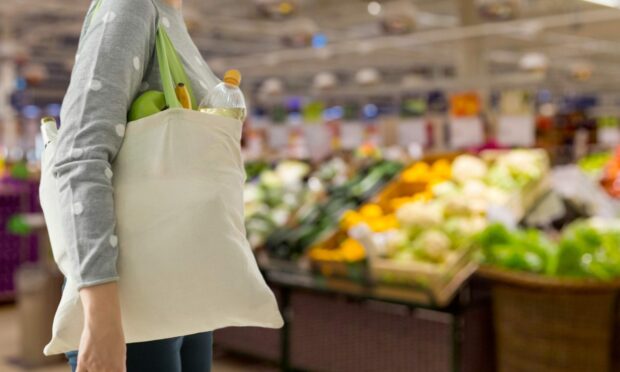
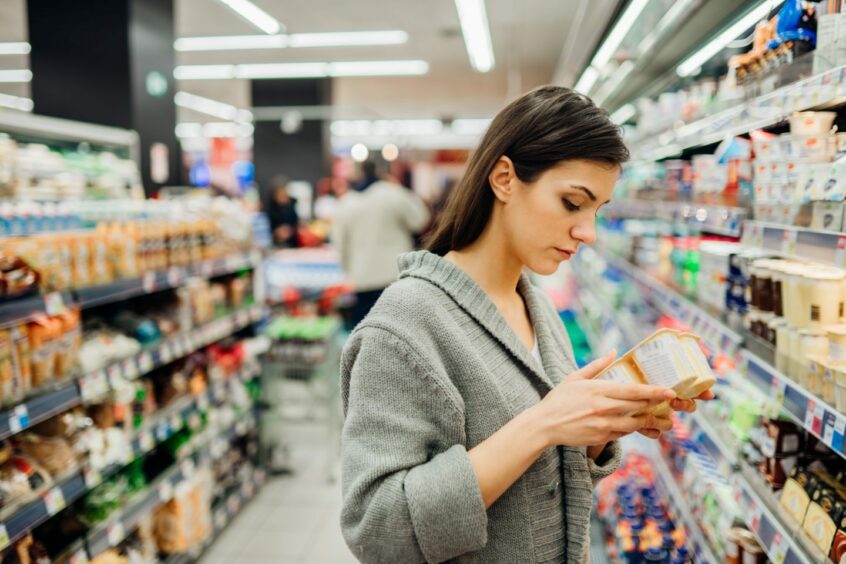

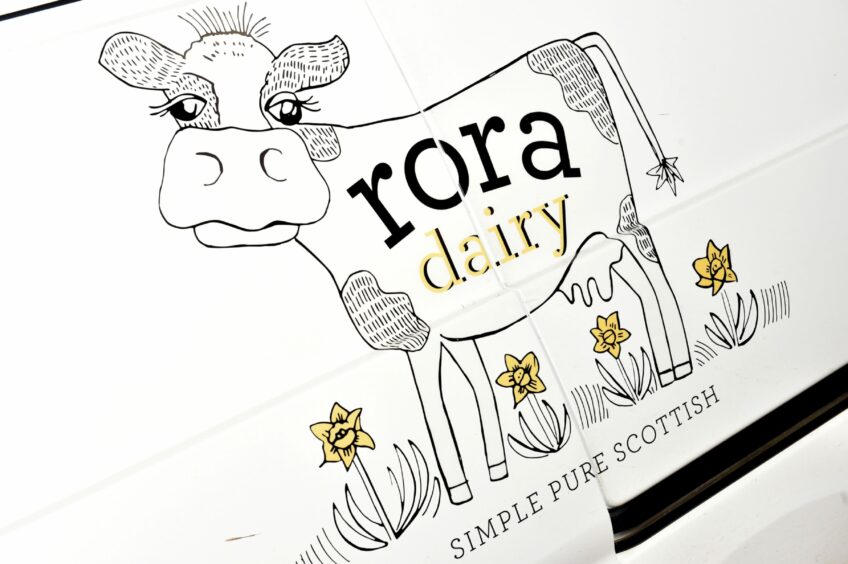
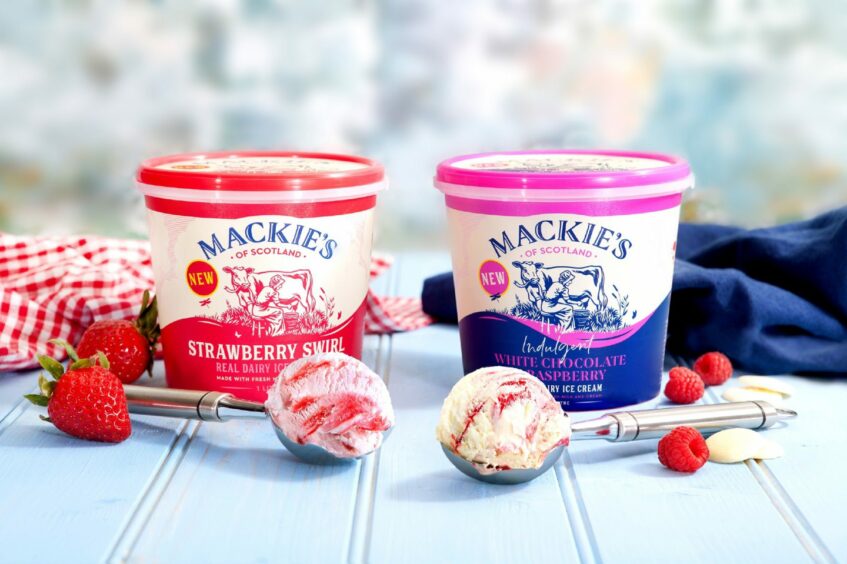
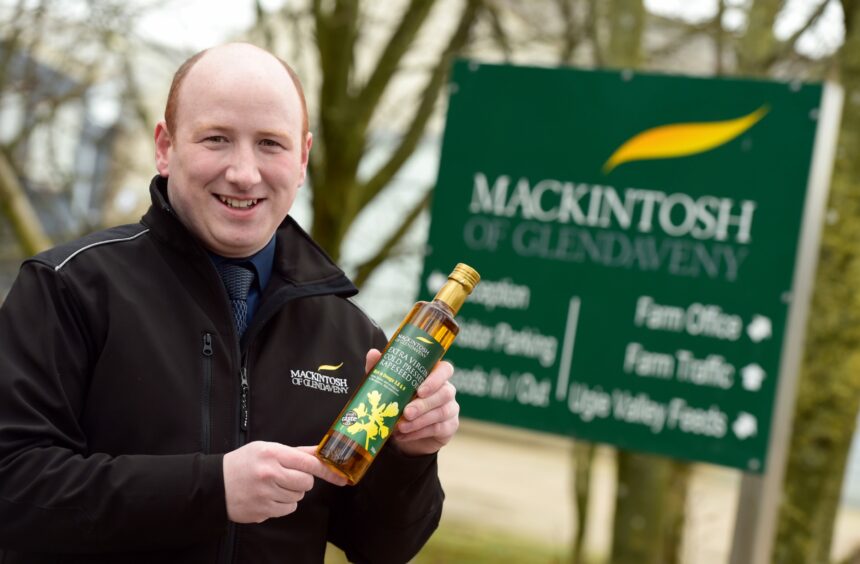
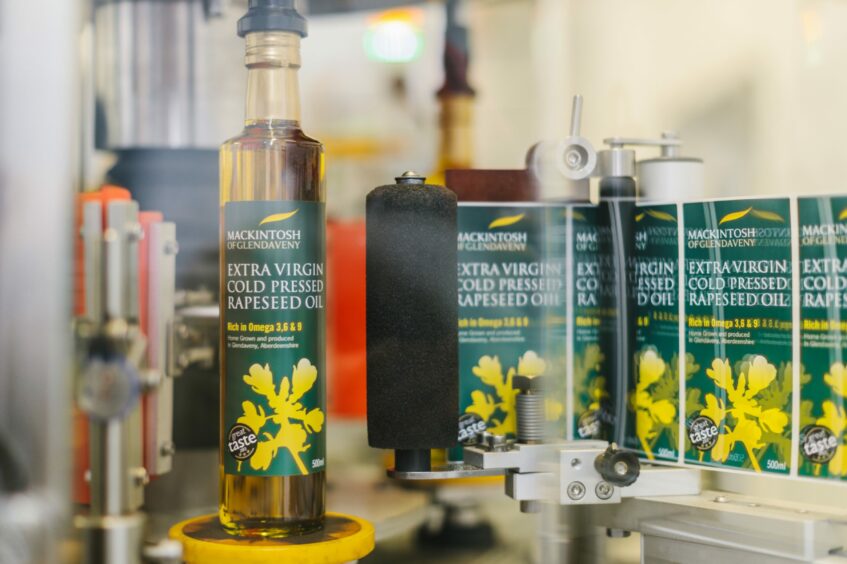
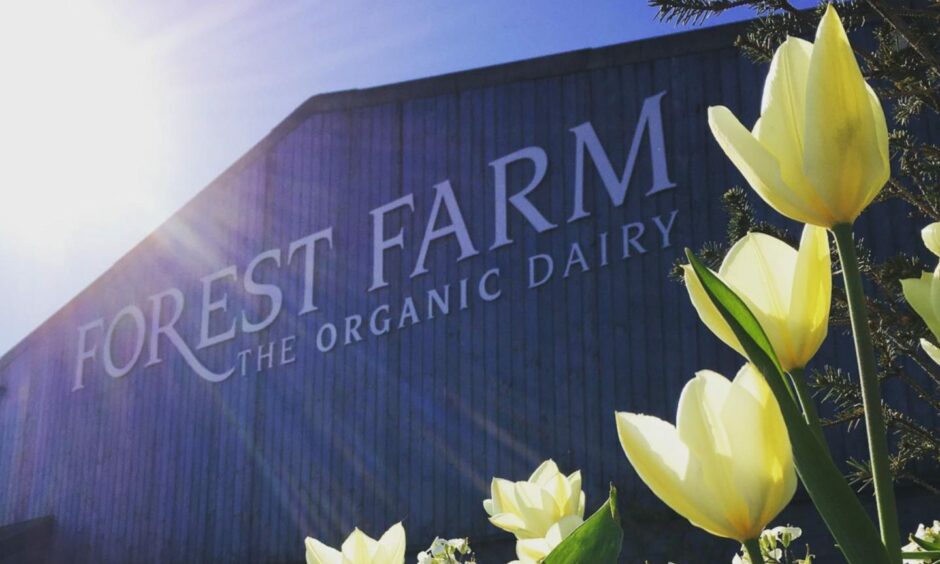
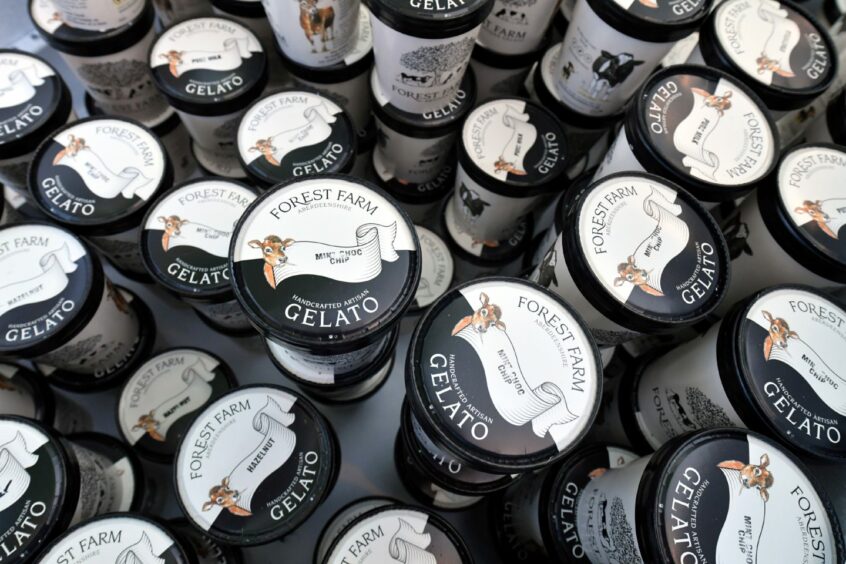
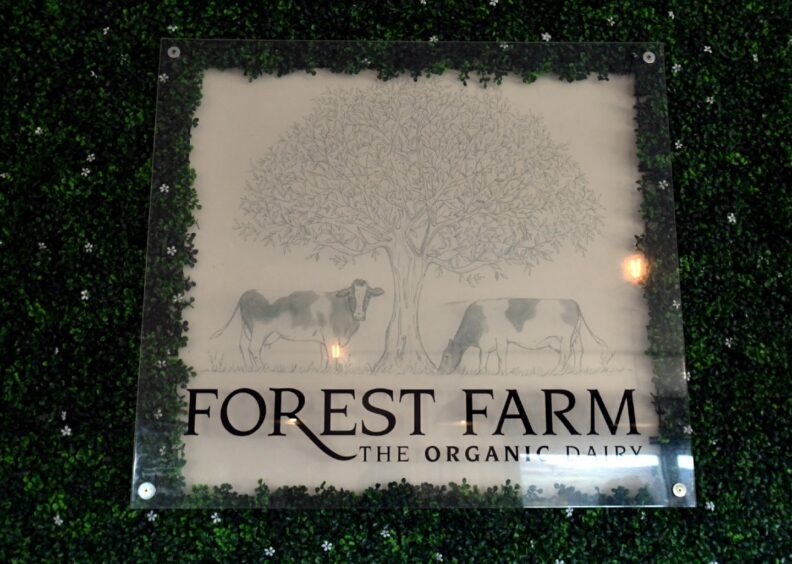
Conversation